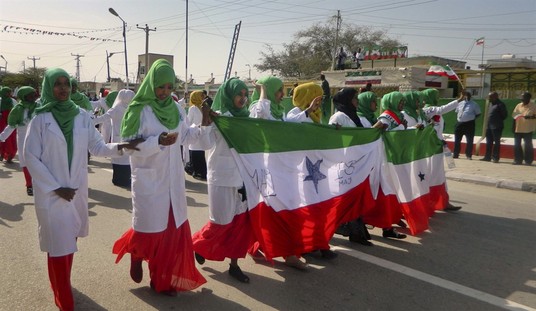Since Yasir Arafat’s death in 2004, the cleavages within Palestinian society have become much more apparent. We are witnessing a telling and significant growth in violence between Palestinians — a phenomenon which is notable both for its frequency as well as its obscurity in the mainstream press.
Just a few short days ago, a masked gunman carried out an attack on a summer camp run by the United Nations Relief and Works Agency (UNRWA). Setting fire to the camp, the gunmen attacked the guard and issued threats against UNRWA officials, including John Ging (director of UNRWA operations in Gaza). UNRWA’s ostensible crime? Teaching girls.
The attack was condemned by the Palestinian Centre for Human Rights, and Hamas claimed to arrest some of the perpetrators. But the practical consequence is that these pronouncements lend a halo effect meant to highlight a putative level of accountability within Palestinian society. Islamism is growing rapidly in Gaza — predominantly nurtured and uncensored by the Hamas leadership. The losers are all Gazans, who are deprived of — among other things — the rule of law, the right to free expression and religion, and the opportunity to live in a society which values building education and infrastructure rather than diverting resources into terror and war.
Even more unfortunate is the dedication of Palestinian and NGO institutions to preserving the status quo. Although UNRWA gets to play the victim card in this instance, it is in fact the ultimate “embedded” NGO. UNRWA has long been co-opted by its own constituents and has in the past had its involvement with terrorist elements and corruption revealed in the West. Fueled by negative attention and an initiative in the U.S. Congress to legislate transparency in American funding to UNRWA, the organization has made attempts to address the charges.
There is a larger issue at work, however. Nearly seventeen years after the signing of the Oslo Accords and a decade since Palestinians achieved autonomy via the apparatus of the Palestinian Authority, hundreds of thousands of Palestinians retain the designation of “refugee” and live in “refugee camps.” Every single one of these camps is within the jurisdiction of an Arab government. Despite a history of flowery pronouncements celebrating the “commitment” to the resolution of the refugee issue, Palestinian refugees continue to be used as pawns by their own leaders.
Even worse is the entrenched cultural and political commitment to maintaining a culture of victimhood and recidivism. Just last month the Jordan Times ran an article featuring children demanding the “right of return.” Far from encouraging a sense of responsibility for pursuing peaceful co-existence with Israel (as was agreed to both in the Oslo Accords as well as the Jordan-Israel Peace Treaty), the children reveal a much deeper pathos of an education dedicated to fostering hatred. The children, several of the 1.9 million Jordanian citizens registered by UNRWA as “refugees,” still live in refugee “camps” – in a nation in which they are full citizens – and participated in a demonstration calling for the “liberation of Palestine.”
For over six decades the United Nations — not to mention the rest of the world — has averted its eyes as Arab nations and the Palestinian leadership themselves have abandoned the real welfare of the refugees in favor of their utility as political leverage. In Lebanon (a nation which has a troubled history of its own with its Palestinian refugee population), U.S. Ambassador to Lebanon Michele Sison recently announced that the U.S. would allocate another $20 million to UNRWA to facilitate the rebuilding of the Nahr al-Bared refugee camp (destroyed by Palestinian internecine fighting).
Meanwhile, John Ging nearly simultaneously called for activists to attempt to break the Israeli and Egyptian blockade of Gaza (an effort to halt shipments of weaponry to the Hamas leadership and stem terrorist attacks). As the largest bilateral donor to UNRWA, the United States is in a unique position. The U.S. can, and should, use its influence to demand financial transparency in the organization (an obvious need, given UNRWA’s history of terrorist cooptation). Even further, the United States can begin to demand a fundamental policy shift in the United Nations’ approach to the Palestinian refugee issue — starting with the eventual dismantling of UNRWA and weaning Palestinian society off of UNRWA services (which should be provided by the PA). As long as UNRWA remains a vital and entrenched actor — one which is institutionally devoted to the preservation of the refugee issue rather than its solution — no real progress can be made.
If the Obama administration is serious about helping bring a Palestinian state about, UNRWA should be out of the picture. Only then can the U.S. — along with other nations — begin to demand of the Arab nations and the Palestinians themselves that this issue be resolved on the ground by remediating the political, economic, and social conditions of those designated as “refugees” for way too long and without real cause. Palestinian independence will only come about when they abolish the “refugee problem” and the “right of return” which is what prevents Palestinian society from ever becoming an independent nation-state.









Join the conversation as a VIP Member